Back to the Dark Side: Dick Cheney’s Pax Americana
"Exceptional," the new book from former Vice President Dick Cheney and his daughter, Liz, is nothing more than an unhinged rant that smacks of sedition.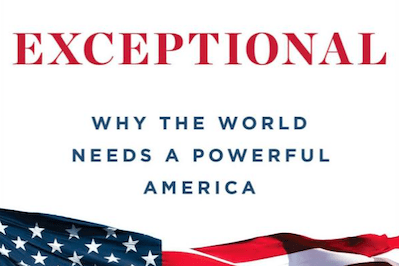 Threshold Editions
Threshold Editions
Threshold Editions
This piece first appeared at The Washington Spectator.
Exceptional, the new book from former Vice President Dick Cheney and his daughter, Liz, is not. It is nothing more than an unhinged rant that smacks of sedition.
“The children need to know the truth about who we are, what we’ve done, and why it is uniquely America’s duty to be freedom’s defender,” the prologue proclaims. The book, however, is not about who we are but who Cheney wants us to become. It is a call for Americans to reject constitutional government and those values that have guided our nation for 227 years and replace it with imperial rule in the name of “freedom”––even when that rule includes wars of choice, intrusive violations of our privacy and civil liberties, and of course, an aggressive regime of torture.
This review assumes that Exceptional represents Dick Cheney’s ideas, and so we will refer to the author only in the singular. (To the extent the book reflects Liz’s original thinking, consider it a mind meld.)
Part One begins with Uncle Dick recounting how “the American Century” has been marked by a fight that he and a few other white-hatted cowboys have waged to keep the world safe for “freedom.” In Cheney’s telling, pro-war and wartime leaders were strong and “right,” and the others weak and feckless. World War II is reduced to: “We liberated millions and achieved the greatest victory in the history of mankind, for the good of all mankind. America––the exceptional nation––had become freedom’s defender.”
Manichean World View
In Cheney’s Manichean worldview, Truman was right to drop the atomic bomb on Japan, and Eisenhower’s farewell speech was not a warning of the growing power of the military-industrial complex as is commonly understood, but, rather, a strong endorsement of it. Reagan’s unwillingness to give up America’s right to missile defense (SDI) was “an exercise of diplomacy that should be studied by all future policy makers.” Obama’s foreign policy strategy is simply, “don’t do stupid stuff.”
Left out of Cheney’s idyllic tale of American exceptionalism in that era are such inconvenient freedom-defending events as the overthrow of the democratically elected government of Iran in 1953 and the imposition of the oppressive Shah who ruled with an iron fist until his downfall in 1978; the overthrow of the democratically elected Allende government in Chile, replaced by the military dictator, Pinochet; the Reagan administration’s support of the Contras in Central America in the 1980s; and the slavish support of African dictators like Zaire’s Mobutu Sese Seko.
Cheney conflates the Gulf War, conducted when he was George H.W. Bush’s Secretary of Defense, with the Iraq War (“We were right in 1991 and we were right in 2003.”) but without noting important differences. The Gulf War was a true coalition off the willing, with 32 nations contributing forces operating under the authority of the United Nations and very specific Security Council resolutions, and the rest of the world paying 90 percent of the war’s costs. At its conclusion, the United States was at the pinnacle of its power, which it used to advance the cause of conflict resolution in the region. By contrast, the Iraq War was essentially a United States operation to remove Saddam with limited support, no U.N. resolution, and the entire cost borne by the United States. The consequences are abundantly clear: the region is in chaos, overrun by the same brutal terrorists and radical forces that the Cheney doctrine was supposed to eliminate.
Cheney’s selective memory is again on display as he recounts the events surrounding 9/11. Absent are the infamous CIA memo of August 2001,“Bin Ladin Determined To Strike in US,” the reports of missed signals such as suspicious pilot training, and the fact that the CIA was on the highest possible alert while Bush was cutting brush in Texas and Cheney fishing in Wyoming.
The recounting of the war on Afghanistan is rich in bravado (“we have to work the dark side”) and ultimatums (“the Taliban will turn over the terrorists or share their fate”), but poor on facts. Cheney omits the meeting at Camp David where Paul Wolfowitz kept turning the conversation from Afghanistan to Iraq; the directive Bush gave to Richard Clarke to go back and find some link between 9/11 and Saddam; and Donald Rumsfeld’s observation that there were no decent targets for bombing in Afghanistan and that we should consider bombing Iraq. There is no discussion of the pivot to Iraq just when we were on the verge of finding Bin Laden.
Absent are the infamous CIA memo of August 2001, “Bin Ladin determined to strike in US”, the reports of missed signals such as suspicious pilot training, and the fact that the CIA was on the highest possible alert while Bush was cutting brush in Texas and Cheney fishing in Wyoming.
Defending Torture
Cheney then turns to a vigorous defense of the 2003 invasion of Iraq and the torture policies he championed. Rather than share with the reader the influence he and his key staffers exerted on the decision-making process, Cheney instead recounts the statements of Democrats who voted to support the war, spreading the blame. He neglects to mention the massive propaganda operation directed by the White House or the fact that the whole case was built on lies. Other omissions: Yellowcake, aluminum tubes, mobile bioweapon labs, 9/11 attacker Atta’s supposed meeting with Iraqi intelligence officials in Prague, and intelligence conclusions cooked up in the Pentagon Office of Special Plans and foisted on Colin Powell by Cheney’s chief of staff Scooter Libby for presentation to the United Nations. Instead, “History will be the ultimate judge of our decision to liberate Iraq,” Cheney tells us, “and it is important for future decision makers that those debates be based on facts.” But only those facts he cares to share.
Smearing Obama
By the end of Part One Cheney has fully transitioned from defender of the indefensible to bare-knuckled attacker of President Obama. The Cheney snarl is on full display as he engages in an extended personal smear, complete with dog-whistle comments questioning the president’s patriotism and allegiance. The tirade is a new low, even for those of us who have personally experienced the depths to which Cheney will go to destroy an adversary. The opening paragraph of Part Two says it all: “The . . . level of self-regard was apparent, as was his underlying belief that America had played a malign role in the the world . . . . He [Obama] assessed the last fifty years of American foreign policy through the lens of Indonesia, a nation he called ‘the land of my childhood.’”
“Where some see an exceptional nation, unmatched in the history of the world in our goodness and our greatness, in our contributions to global freedom, justice and peace,” Cheney writes, “Barack Obama sees a nation with at best a ‘mixed’ record.”
Cheney combs the record for every quote and factoid that might be used to undermine the authority and legitimacy of the administration. Former senior intelligence officials are selectively quoted to criticize President Obama’s decision to end the torture program. Cheney would have us believe that
Ending programs that kept us safe, revealing the details about those programs to the terrorists, and spreading untruths about our policies was misguided, unjust, and highly irresponsible. . . . President Obama, having so consistently distorted the truth about the enhanced interrogation program and the brave Americans who carried it out, is in no position to lecture anyone about American values.
The personal attacks are unremitting and obnoxious, but they have a purpose: to whip up resentment, hatred, and every other base emotional reaction that makes civil discourse impossible. It is sedition, plain and clear.
One example is the Benghazi tragedy, where Cheney cannot resist offering his own interpretation: “At the most fundamental level it is the difference between being honest about what happened in Benghazi . . . and adopting a false narrative because it serves political purposes. It is the difference between lying to the American people and dealing with them truthfully—which is what we deserve.” The irony drips from the words.
Cheney saves his harshest attack for the Iran nuclear deal, flatly accusing the president of lying to the American people. The most comprehensive arms control deal with the most intrusive inspection regime ever negotiated, it is a deal not just between the United States and Iran but between the world and Iran, unanimously approved by the U.N. Security Council and lauded by nuclear arms specialists worldwide. To Cheney it is presidential “falsehoods.”
After concluding “In the seventy years since World War II, no American president has done more damage to our nation’s defenses than Barack Obama,” Cheney’s solution to Obama’s perfidy is simple but profoundly disturbing: return to the past failed policies. He advocates massive additional infusions of money to the Pentagon, abandonment of key agreements, further attacks on civil liberties, and imposition of an American Diktat on the rest of the world, by force of arms if necessary. It is difficult to imagine a more ill-advised approach to American national security or international relations.
Exceptional deserves to be dismissed and ignored, except that to ignore it is to risk that the subversive ideas therein actually gain some currency, if left unchallenged. They are an affront to our history, to our values, to our culture, and must be fought.
Valerie Plame is the author of Fair Game: How a Top CIA Agent Was Betrayed by Her Own Government, and two works of fiction. Joe Wilson is a retired career United States diplomat and author of The Politics of Truth: A Diplomat’s Memoir: Inside the Lies that Led to War and Betrayed My Wife’s CIA Identity. In 2003, Plame’s identity as a covert CIA officer was betrayed in retaliation for an article by her husband, Ambassador Wilson, critical of the Bush administration’s lies that led to the Iraq war. Vice President Dick Cheney’s chief of staff, I. Lewis (Scooter) Libby, was later convicted on four counts of obstruction of justice and perjury in the matter.
This piece first appeared at The Washington Spectator.
Your support matters…Independent journalism is under threat and overshadowed by heavily funded mainstream media.
You can help level the playing field. Become a member.
Your tax-deductible contribution keeps us digging beneath the headlines to give you thought-provoking, investigative reporting and analysis that unearths what's really happening- without compromise.
Give today to support our courageous, independent journalists.

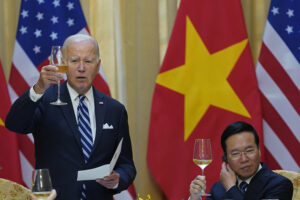
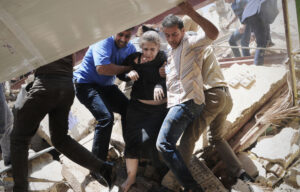

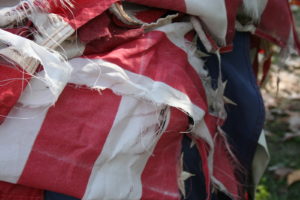

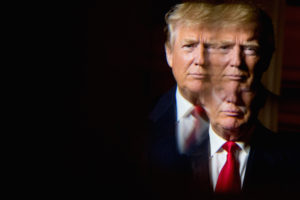


You need to be a supporter to comment.
There are currently no responses to this article.
Be the first to respond.